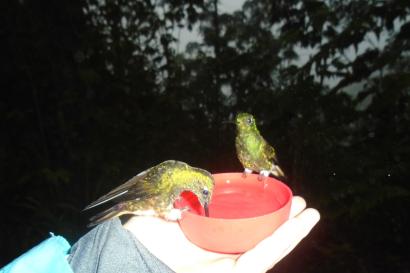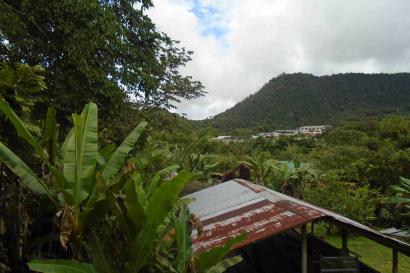March marks the halfway point of my time here in Ecuador, as well as the start of women’s history month back in the US. It’s hard to believe I’ve already been living in Ecuador for two months, and that I have that same amount of time left. It’s been 8 weeks of exploration, learning, and cultural immersion. Life here is obviously different than life in the US, and in many ways (I’m thinking fruit juices, incredible biodiversity, and relatively cheap cost of living) better. But in other ways living here can be challenging - one of the reasons being that I’m a woman. So in honor of women’s history month, I wanted to use this blog post to talk about what it’s like to be a woman studying abroad in Ecuador.
Every country has culturally different views of women, gender, and sexuality. In the United States, inequality based on these factors is often presented in subtle ways: the expectation that women should stay home with kids at least for a time after becoming mothers (whereas men have no such expectation), the way men will hold you by your hips to move past you in a bar (interesting that they have to do that, when I’m perfectly able to move by them without touching them), or even the gender roles depicted in movies and tv.
In Ecuador however, a lot of the inequality is more blatant. South America, in general, has higher rates of domestic violence and sexual violence than North America, though surprisingly, not that much higher - statistics for these categories vary, but in general, they hover around 33% of women in the US and 40% of women in Ecuador having experienced partner violence in their lifetime. From my experience living in Ecuador, I’d say the difference is in the attitude: In the US inequality is still very much present, just hidden in blankets of political correctness. In Ecuador, it’s out in the open.
What do I mean by this? A good example is the catcalling. In the US, there’s plenty of catcalling too, but when I was living in Quito it was constant. While waiting for the bus outside my house in the mornings, men driving by would honk their horns, eyes staying fixed on me as they passed. While walking down the street it's common to get “hola...princesa…”s and the pspspspsps sounds men would make to try and get your attention.
A lot of this can be attributed not only to being a woman, but to being a white woman - this got me more unwanted attention because I stood out, and because of the complicated historical and current relationship between western and South American countries. Catcalling and other forms of unwanted advances are also a result of “machismo” culture, in which men in Ecuador are supposed to be manly and chase women (I’m very much oversimplifying this for the sake of giving you a general gist, and encourage a google search if you’re interested in learning more).
Openness of inequality is half of the difference between the United States and Ecuador; the other half is how I respond to the harassment. At home in the US, if I get catcalled while walking down the street, I’ll turn around and shout a … ahem … creative insult at the man who did. But in Ecuador that would be more likely to egg a guy on further, or provoke a confrontation, so most of the time I would just try to ignore it.
I want to make clear that not all men in Ecuador treat women poorly. In fact, almost every man I interacted with in Ecuador was incredibly welcoming and sweet. The instances I’ve been describing have mostly been from strangers on the street and men at bars. It’s like in the United States - most men aren’t bad, but the ones that are play a larger part in shaping your overall impressions.
So to any girl who is considering studying abroad in Ecuador, I’d say don’t let cultural attitudes about gender scare you; just know what you might have to put up with, and stay alert while out at night or walking down the street. I’d also say that though gendered violence and harassment is a problem in Ecuador, it’s not that far removed from what women experience in the United States.
Here in the US, sexual remarks are shared as smirks between groups of dudes rather than called out to the woman. Physical harassment occurs in ways that can be contested as happening “only because I was drunk!” rather than outright advances. And machismo culture? Well, that’s really not all that different from instances we might call a “d-ck swinging competition” or the way men are expected to behave based on portrayals in the media.
So although being a woman in Ecuador can be more uncomfortable at times, it’s worth asking ourselves: when you get down to the core of the problem, is America really that much better? Something to think about, this month especially.

Katie Vartenigian
<p>My name is Katie Vartenigian, and I’m a third-year biology student at the University of Maryland. After graduation, I want to go into science writing, preferably for a publication that allows me to travel. When I’m not studying, I like to read, write, play racquetball, and spend time with my friends. I can’t wait to study abroad this semester in the Galápagos and explore Ecuador!</p>








